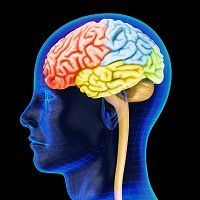Article
Exploring the Link Between Stroke and Alzheimer's Disease
Author(s):
In many elderly Alzheimer's disease patients' brains, evidence of stroke is present.

Nearly half of people with Alzheimer’s have evidence of strokes in their brains, according to research published in Alzheimer’s & Dementia: The Journal of the Alzheimer’s Association.
A multidisciplinary team of researchers convened scientific experts to discuss the research gaps in the understanding of how vascular factors contribute to Alzheimer’s disease and related dementia. In their report, they outline the meeting, the resulting discussions, and the ideal next steps researchers can take in the future to progress further research topics.
The researchers suggested that a common cause for dementia in elderly patients stems from a blend of vascular and brain abnormalities, citing that nearly half of Alzheimer’s patients have evidence of strokes in their brains. Additionally, when the Alzheimer’s plaques and tangles are combined, a person’s likelihood of dementia is increased. Stroke, the researchers reminded the convention, is made worse by conditions such as smoking, hypertension, and/ or diabetes.
“We are encouraged by the potential for new treatment strategies for dementia to arise from studying the crossover of vascular factors with the progression of Alzheimer’s,” Heather M. Snyder, PhD, director of medical and scientific operations for the Alzheimer's Association, and first author of the new article said in a press release. “In terms of next steps, we need to develop the research tools and collaborations necessary to further scientific investigation in this promising area of study.”
Prior studies have indicated that drugs and lifestyle interventions can prevent cerebrovascular disease, but the same precedent has not been set for dementia.
“Whether improved control of vascular risk factors can be translated to decreased dementia risk is not known, but results from a number of studies suggest that it is possible, and this untapped potential definitely deserves greater research attention,” continued Snyder.
Other conclusions from the meeting, and areas of research that need to be explored included:
- The link between diabetes and insulin resistance and risk of vascular disease, Alzheimer’s and related dementia.
- Genetic factors that could influence vascular processes and other changes in the brain
- Impact of immune system response on blood flow in the brain in the progression of Alzheimer’s disease
- The role of fat breakdown in the brain in the removal of amyloid build up that leads to the signs of brain plaques in dementia and Alzheimer’s disease
- Managing the impact of vascular risk factors of memory and cognitive abilities
“Since the brain has one of the body's richest networks of blood vessels, it is especially vulnerable,” said the paper’s co-author Donna M. Wilcock, PhD, a neurovascular researcher who is an assistant professor in the Department of Physiology at the University of Kentucky College of Medicine in Lexington. “Considering this and demonstrated success in reducing risk for heart disease, stroke, and other vascular related diseases through healthy lifestyle modifications and use of medications, it only makes sense to increase our understanding of the role vascular factors play in Alzheimer’s and dementia.”


